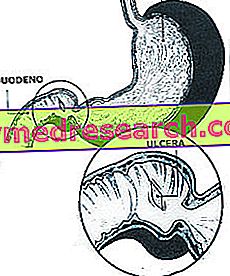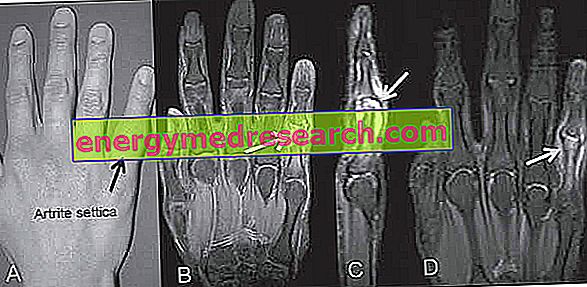ASPIRIN ® is a drug based on acetylsalicylic acid
THERAPEUTIC GROUP: Non-steroidal anti-inflammatory and antirheumatic drugs
IndicationsAction mechanismStudies and clinical effectiveness Usage and dosage instructionsWarnings Pregnancy and lactationInteractionsContraindicationsUndesirable effects
Directions ASPIRINA ® Acetylsalicylic acid
ASPIRINA ® is indicated as a symptomatic therapy in the treatment of inflammatory pains of various nature and of febrile states and flu and cooling syndromes.
Mechanism of action ASPIRIN ® Acetylsalicylic acid
ASPIRINA ® is one of the most widely used non-steroidal anti-inflammatory drugs in the clinical and parent field of a pharmaceutical family known as salicylates.
Acetylsalicylic acid, active ingredient of ASPIRIN ®, is therefore a molecule obtained synthetically from salicylic acid through acetylation in the second position, which gives it a greater therapeutic efficacy even in the face of a better pharmacokinetic profile characterized by a significant reduction in toxicity against the gastro-enteric mucosa.
Taken orally this active principle is absorbed at the level of the gastric and intestinal mucosa, then rapidly distributed to the hepatic level, where thanks to the action of some enzymes known as esterases, it is converted into salicylic acid.
It is precisely this molecule, which reaching the various tissues, performs its therapeutic action by irreversibly inhibiting the cyclooxygenases, and therefore causing a significant reduction in the concentrations of prostaglandins, chemical mediators involved in the genesis of the inflammatory process and endowed with vasopermeabilization, vasodilator and chemotactic .
The aforementioned modes of action are manifested macroscopically with the anti-inflammatory, pain-relieving and minimally anti-pyretic effect, thanks to the counter-regulatory action exerted against some cytokines and prostaglandins with pyrogenic activity.
At the end of its activity the salicylic acid is appropriately metabolized to the hepatic level, mainly through conjugation and glucuronation processes, to then be excreted via the kidney
Studies carried out and clinical efficacy
1. THE ASPIRIN IN THE PREVENTION OF COLORECTAL CARCINOMA
Curr Drug Metab. 2012 Apr 10. [Epub ahead of print]
Very interesting review that tries to characterize the efficacy of aspirin administration in preventing the transformation of intestinal adenomatous polyps into colon cancer. At the base of the preventive mechanism there could be the ability of acetylsalicylic acid to block the expression of pro-inflammatory genes
2 .FANS AND INTESTINAL INFLAMMATORY DISEASES
Ann Intern Med. 2012 Mar 6; 156 (5): 350-9.
Extensive cohort study that demonstrates how the use of non-steroidal anti-inflammatory drugs may more frequently be associated with the incidence of inflammatory bowel diseases such as Crohn's disease and ulcerative colitis. This evidence falls instead for aspirin.
3. THE ASPIRIN IN THE PREVENTION OF the Barret esophagus
Clin Gastroenterol Hepatol. 2012 Mar 15.
Case-control study that demonstrates how the use of aspirin can prevent histological complications associated with pathologies such as gastroesophageal reflux such as, for example, the esophagus of barrett, often the antechamber of much more serious pathologies.
Method of use and dosage
ASPIRINA ®
325 - 500 mg tablets of acetylsalicylic acid
ASPIRIN C®
Effervescent tablets of 400 mg of acetylsalicylic acid + 240 mg of ascorbic acid
We recommend taking 1-2 tablets 2-4 times a day, taking care to use the minimum effective dose, avoiding prolonging the drug for more than 3-5 days.
In order to minimize the incidence of side effects, especially those affecting the gastro-intestinal tract, it would be preferable to take the drug on a full stomach.
Warnings ASPIRINA ® Acetylsalicylic acid
Although ASPIRINA ® is a salable drug without a prescription, it would be advisable to consult your doctor before taking this medicine, taking care to extend the therapy for a period not exceeding 5 days.
In order to reduce the side effects associated with acetylsalicylic acid therapy, it would be advisable to take ASPIRIN ® preferably on a full stomach and in the lowest possible doses.
Particular caution should be reserved for patients suffering from cardiovascular, coagulative, renal, hepatic, allergic and gastrointestinal pathologies, given the greater susceptibility of these to the side effects of NSAID therapy.
If the therapy turns out to be ineffective or you notice the appearance of side effects, it would be advisable to consult your doctor, possibly considering the possibility of suspending the drug.
PREGNANCY AND BREASTFEEDING
Known the role of prostaglandins in effectively controlling the process of cellular differentiation and proliferation, it is easy to understand how the intake of non-steroidal anti-inflammatory drugs such as acetylsalicylic acid, can compromise normal fetal and embryonic development, increasing the risk of unwanted abortions and malformations neonatal.
For this reason the use of ASPIRINA ® is strictly contraindicated both during pregnancy and in the subsequent period of breastfeeding.
Interactions
The efficacy and safety of acetylsalicylic acid can be significantly altered by the simultaneous use of other active ingredients, which can significantly increase the risk of unwanted reactions.
More precisely, the simultaneous intake of ASPIRINA ® e:
- Oral anticoagulants and inhibitors of serotonin reuptake, could increase the risk of bleeding;
- Diuretics, ACE inhibitors, angiotensin II antagonists, methotrexate and cyclosporin, could enhance the hepatotoxic and nephrotoxic effects of acetylsalicylic acid;
- Non-steroidal anti-inflammatory drugs and corticosteroids, could be responsible for an increase in direct damage to the gastro-intestinal mucosa;
- Antibiotics, could alter the pharmacokinetic and therapeutic properties of NSAIDs;
- Sulfonylureas, could alter the normal glucose metabolism, leading to a greater risk of hypoglycemia.
Contraindications ASPIRIN ® Acetylsalicylic acid
The intake of ASPIRINA ® is contraindicated in case of hypersensitivity to the active substance or to one of its excipients, angioedema, peptic ulcer, history of intestinal bleeding, ulcerative colitis, Crohn's disease or previous history for the same diseases, cerebrovascular bleeding, haemorrhagic diathesis or concomitant anticoagulant therapy, renal failure, liver failure, asthma, hypophosphataemia and viral infections.
Undesirable effects - Side effects
The intake of acetylsalicylic acid as well as that of other non-steroidal anti-inflammatory drugs is often accompanied by numerous side effects, which occur with greater incidence and severity in patients who are particularly predisposed or subjected to long and high-dose therapies.
The reactions at the expense of:
- Gastrointestinal system, subjected to the direct and indirect irritation of the ASA which manifests itself with burning, gastralgia, nausea and vomiting, constipation and in more serious cases ulcers and hemorrhages;
- Blood, in which a significant lengthening of the bleeding time is observed, only rarely associated also with pancytopenia;
- Genitourinary system, characterized by a progressive deterioration of renal function;
- Integumentary system affected by erythema nodosum, rash, dermatitis and bullous reactions in the most serious cases;
- Sensory system affected by hearing loss and ophthalmopathies;
- Metabolic control, with alterations mainly due to carbohydrate metabolism;
- Central nervous system with headache, insomnia, drowsiness, confusion and tremors;
- Cardiovascular system associated with an increased risk of cerebro and cardiovascular events.
Note
ASPIRINA ® is salable without medical prescription.



